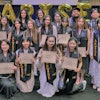I know ethnic nationalists. We all do. Some of them are unassuming in the sense of being modest even as they are assuming in the sense of dividing the world and its inhabitants. For them, geography and borders are demarcated by ancestry and bloodlines. By their definition of belonging, only natives qualify as kith and kin. As a Chinese American, I feel vulnerable right now because of the anger toward China. If I insist, as I do, that I am an American, I doubt I am convincing.
Among the ethnic nationalists are White Americans who might be embarrassed if the attitude were called out, but who casually suppose they have a greater claim to the land of the new world. Although they believe in individualism and would not proclaim their privilege as such, they take for granted that their rightful position somehow has to do with the accident of their forebears having arrived before others. But it includes as well the Chinese, who are confident a century of collective humiliation is finally ending and they are on the cusp once again of occupying the center of civilization befitting the name of their country. They anticipate “overseas Chinese,” such as me, then will face the choice to be true to their patrimony as they should by nature or to be disregarded as an embarrassment who made the mistake of forsaking their legacy.
Among the quarrels of immigrant parents and their progeny is whether to assimilate. Neighbors who all share the same birthright under the same roof may not be familiar with the dilemma which exceeds their own experiences. The dutiful child who displays filial piety and otherwise behaves properly, doing extra homework to succeed and make good on the elders’ sacrifices, will not be the cool kid accepted by peers. He cannot be, because he won’t be outdoors playing, corrupted by temptations that could lead to disgraceful outcomes such as an A-minus, or, worse, coming out as gay.
Yet the demand issued by everyone else is: be like us. If you are not, you will be teased and taunted in the common cruelty of childhood. The standard is set by social superiors. You must copy us in your wardrobe and your habits, but you cannot; you are fated to fail. Even if you are an excellent mimic, however, you are obviously “trying too hard.” There might be malice to the mandate, but not necessarily. It is matter of fact.
I begrudge none of the decisions made by children. By definition, they are not ready to make permanent commitments, even as they — and circumstances — set the course that will be difficult to break from, for their adult avatars. That includes not only my earlier self. I am acquainted with many Chinese school delinquents and drop outs, who, like me, preferred to binge Saturday morning television cartoons and consume sugary cereals. That is easy enough to regret. I wonder what became of those who were the subjects of comparison in our parents’ contest, the rhetorical question, “Why can’t you be more like so-and-so, our friend’s son,” which one wished could be answered by punching that fellow, of course guiltless, in the nose. If they were studious in their lessons, and now and then you meet the guy (or, to stereotype negatively about my own gender, more likely the gal) who is passably fluent, maybe even semi-literate, in Mandarin. I am impressed. I am capable of admiring them now.
It is only upon maturity that these realizations are possible, because maturity is defined by the realizations. Among the epiphanies is that whatever the abstract ideal, the reality turns out as it does, in this regard and perhaps others as well. Whether your family is alone in the suburbs, or among cousins who form a critical mass in a community that has a church and a center, literal and figurative, will determine whether you feel pride or shame about your Asian name.
The tragedy, however, is that the deal was a fraud from the moment the proposal was implied. While cultural deviance probably renders you more vulnerable, cultural conformity — say perming your hair — protects you minimally at best.














